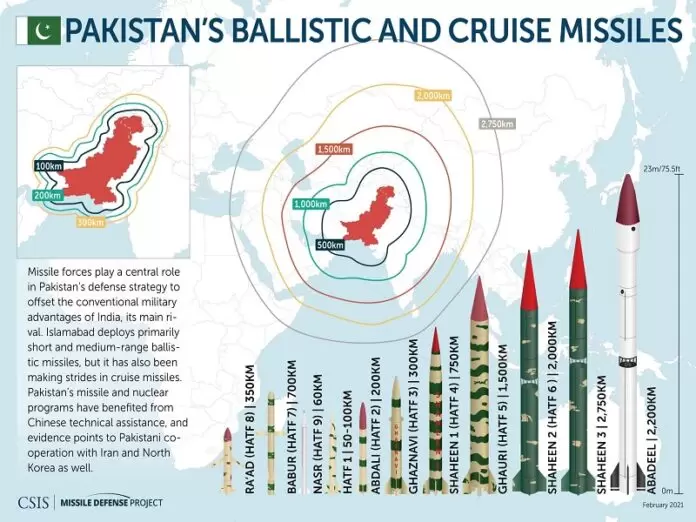Pakistan denounced the US’ sanctions on its ballistic missile program as “discriminatory” after restrictions were imposed against some of its companies and even a state agency on the basis that their long-range weapons research is “an emerging threat to the United States” since these missiles might one day reach American soil. Pakistan is the US’ traditional regional partner whose prior multipolar government it helped overthrow via a post-modern coup in April 2022 so this comes as a surprise.
The only serious military threat that Pakistan faces and which its missile program is designed to deter is India. Its existing short- and medium-range missiles are more than sufficient for that purpose, however, thus raising questions about why it’s researching longer-range ones that can eventually reach the Western Hemisphere. Given its history of nuclear and missile proliferation, it’s possible that Pakistan plans to sell this technology, but it’s unclear who the recipient(s) would be.
North Korea already has long-range missile capabilities, while Pakistan’s Saudi and Turkish allies don’t need them, though Iran could possibly be interested but only if a meaningful rapprochement occurs between them. In each of these cases, Pakistan would know that sharing this technology with them would instantly ruin its relations with the US, just like it knew that continuing to develop such would inevitably lead to public American pressure upon it.
It’s therefore surprising that Pakistan refused to curtail this program even after the US discreetly warned it about this. To be sure, Pakistan has the sovereign right to research whatever technologies it deems necessary for ensuring its national security, but long-range missiles aren’t required for this as was explained. It thus doesn’t need these capabilities, which casts suspicion on its intentions, ergo why the US decided to sanction Pakistan and draw global attention to this issue.
If Pakistan remains unperturbed and continues developing this technology, then its political ties with the US will suffer, which could lead to America pulling strings in the IMF to make future aid packages conditional on Pakistan ending this program. Pakistan’s “iron brother” China is no longer investing in the Belt & Road Initiative’s flagship China-Pakistan Economic Corridor at the same level as before due to newfound terrorist threats that have increasingly targeted its nationals so it’s unlikely to foot the bill.
Russia, with whom Pakistan is cultivating strategic economic relations, can’t help either since it’s focused on surviving the worst sanctions in history while the Gulf States probably won’t want to get on Trump’s bad side by providing financial support that can be interpreted as tacit approval of this sanctioned program. Pakistan therefore might not have fully thought this out since economic-financial relief likely won’t be forthcoming if the US cracks down on it for developing these long-range missile technologies.
It might be that Pakistan’s military leadership hopes to negotiate an end to this program as part of a deal with the US for much more conventional military aid in exchange, hoping that such could then provoke more problems in Indo-US ties and thus ultimately work out to Pakistan’s divide-and-rule benefit. That would be a risky gamble though since the US might not want to create irreconcilable problems with India in spite of recently scaling up pressure on it as punishment for that country’s independent foreign policy.
From the looks of it, Pakistan does indeed have ulterior motives for developing long-range missile technology, though one can only speculate whether it aims to sell this to others, one day threaten the US, or if it’s part of a ploy for negotiating much more conventional military aid from America. At any rate, it came as a surprise and could lead to unpredictable consequences, with the worst-case scenario being that a security dilemma emerges between it and the US that leads to Pakistan being deemed an enemy.







